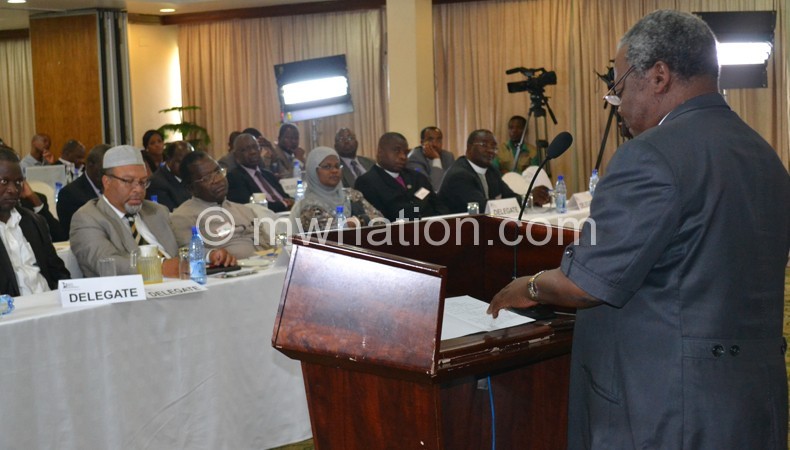PAC extends board’s mandatePAC extends board’s mandate
Trustees of the Public Affairs Committee (PAC) have extended the executive board’s mandate following the expiry of its members’ term of office in May 2016.
PAC executive director Robert Phiri confirmed in an interview yesterday, saying although their tenure expired three months ago the members still have mandate to operate.

He said the trustees, who are legal owners of the body, have the authority under PAC constitution to make such decisions.
“Board members have the full mandate after PAC trustees resolved that they should operate until November 2016,” explained Phiri.
The current executive board, which was elected in 2013, is headed by Blantyre CCAP Synod’s cleric the Reverend Felix Chingota.
Phiri said PAC was expected to hold its annual general meeting (AGM) at the end of the current team’s term of office but could not do so due to delays in receiving funds for the event.
“We are now working on specific dates as a secretariat so that they are aligned with the specific timeframe when funds will be transferred to PAC for such an event,” he said.
Among others, positions to be contested during the AGM include that of chairperson, vice-chairperson, treasurer, board secretary, publicity secretary and four committee members.
Before the AGM, the body is also expected to hold a stakeholders national conference next month which will be a follow-up to its Fifth All-Inclusive Stakeholders Conference held in Blantyre in February.
Commenting on the issue, social and political commentator Dan Msowoya said PAC needed to be granted the benefit of the doubt for the extension of the board’s mandate.
“I understand the situation at PAC. But the fact that they were given the mandate under which to operate… Possibly there are reasons and issues that have occurred,” said Msowoya.
PAC is made up of the main Protestant, Catholic and Muslim faith groups to advocate different issues affecting the country. It played a vital role between 1992 and 1994 during Malawi’s transition from one-party rule to political pluralism.





